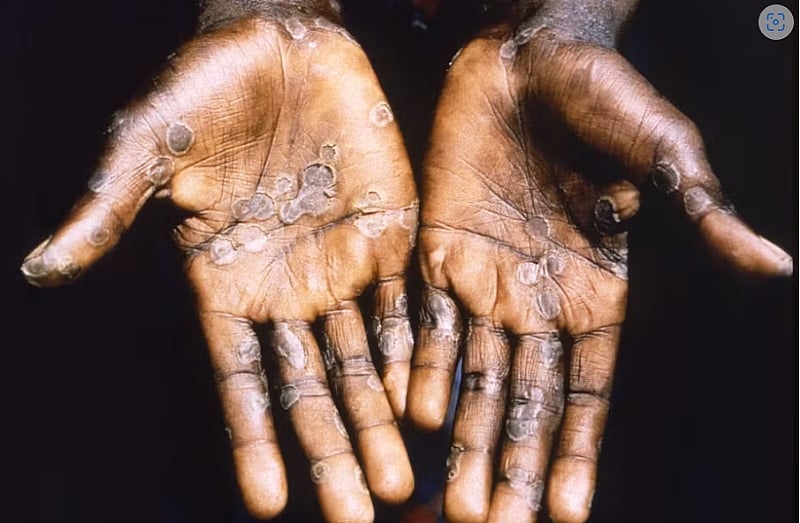The Ghana Health Service (GHS) has confirmed two cases of Mpox in the Accra Metropolitan Area, prompting a swift and comprehensive public health response to contain the virus and prevent further transmission. While the confirmation of these cases raises concerns, health authorities emphasize that the situation is under control and there is no cause for widespread panic. The GHS, in collaboration with the Ministry of Health, is actively implementing established protocols for infectious disease control, assuring the public of their preparedness and capacity to manage the outbreak effectively. The immediate focus is on contact tracing, community surveillance, and public education to limit the spread of the virus and empower citizens with the knowledge to protect themselves.
Mpox, formerly known as monkeypox, is a viral zoonotic disease, meaning it can be transmitted from animals to humans. It can also spread between people through close contact with an infected individual, their bodily fluids, or contaminated materials like bedding. The virus typically manifests with flu-like symptoms such as fever, headache, muscle aches, and fatigue, followed by a distinctive rash that develops into fluid-filled blisters. These blisters eventually scab over and fall off. The incubation period, the time between exposure and the onset of symptoms, typically ranges from 6 to 13 days but can extend up to 21 days. The illness typically lasts for 2 to 4 weeks, and while most people recover fully without specific treatment, severe cases can occur, particularly in individuals with weakened immune systems.
Upon confirmation of the two cases in Accra, the GHS immediately initiated contact tracing procedures. This involves identifying and monitoring individuals who may have come into contact with the confirmed cases to assess for symptoms and provide appropriate medical care and guidance if needed. This proactive approach aims to isolate potential infections early and break the chain of transmission. Simultaneously, the GHS is intensifying community surveillance efforts to detect any further cases promptly. This includes enhanced monitoring within the affected communities and broader surveillance across the country to identify any potential spread of the virus.
Public education is a critical component of the GHS’s response strategy. The service is launching nationwide awareness campaigns to educate the public about Mpox, its transmission routes, symptoms, and preventive measures. These campaigns will disseminate crucial information through various channels, including public service announcements, community engagements, and social media platforms. The goal is to empower individuals with the knowledge and tools to protect themselves and their communities. This includes emphasizing the importance of practicing good hygiene, such as frequent handwashing, and avoiding close contact with individuals exhibiting symptoms like a rash or flu-like illness.
The GHS is emphasizing preventive measures as a key strategy in containing the spread of Mpox. These measures include practicing meticulous hygiene, particularly regular handwashing with soap and water or using alcohol-based hand sanitizers. It is also crucial to avoid close physical contact with anyone displaying symptoms of Mpox, such as a rash or flu-like illness. If any such symptoms develop, individuals are urged to seek immediate medical attention for prompt diagnosis and appropriate management. Early detection and isolation are vital to prevent further transmission.
The GHS and the Ministry of Health are confident in their ability to manage the situation effectively and prevent a larger outbreak. They have assured the public that Ghana’s public health system is well-equipped to handle such situations, with established protocols and experienced personnel in place. The response to the confirmed Mpox cases demonstrates the country’s commitment to safeguarding public health and its proactive approach to emerging health threats. While the confirmation of these cases is a cause for concern, the GHS reiterates that there is no need for widespread panic. The ongoing efforts, combining swift action, robust surveillance, and public education, aim to effectively contain the virus and protect the health of Ghanaians.


